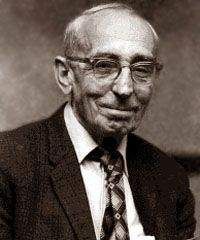Пользователь - o 3b3e7475144cf77c
frenzy was uncontrollable, his will irrepressible. But behind this seeming madness would be a
watchful eye and a shrewd, calculating brain. Adi would know exactly what he was doing and
how far he could go; if the opposition became too strong, he would give way, he would make
promises—and then next day it would be discovered that his followers were going right ahead
doing what he wanted done, and he would be saying that he couldn't control them. If it was
something serious, like the Reichstag fire, he would know nothing about it, he would be
completely taken aback, astounded, horrified; but it would be too late—the building would be
burned, the victim would be dead, the die would be cast.
For more than a decade he had been training his followers to these tactics. They must be a
band of desperadoes, stopping at nothing to get their way. Nothing on earth or in heaven was
sacred except their cause; nothing was wrong that helped their cause and nothing was right
that delayed it for a single hour. Individually and collectively they must be the most energetic
and capable of criminals, also the most shameless and determined liars. They must be able to
say anything, with the most bland and innocent expression, and if they were caught they
must admit nothing, but turn the charge against the other fellow; he was the liar, he was the
crook, he alone was capable of every wrongdoing. Adolf Hitler had never admitted anything to
anybody; he had never told a lie in his life, had never committed any improper action; he was
a consecrated soul, who lived and was ready to die for one single cause, the triumph of
National Socialism and the liberation of the German Volk.
For ten years he had been organizing two private armies of young men, several hundred
thousand fanatics imbued with that spirit: the Sturm Abteilung, or Storm Division, and the
Schutz Staffel, or Defense Formation. They were the men who were going to carry out his will,
and by now they knew it so well that they could act while he was eating, resting, sleeping—even
while he was telling the world that he didn't want them to do what they were doing. Even if he
told them to stop they would go right ahead to crush the last foe of National Socialism inside
the Fatherland, and make the streets free to the brown battalions—the promise of that Horst
Wessel Lied which Hitler had taught them to sing.
XIV
A dreadful series of events to watch; and the fact that you were physically safe from them
wasn't enough for persons with any sensitiveness of soul. Hansi and Bess couldn't eat, they
couldn't sleep, they couldn't think about anything except what was happening to their friends
and associates at home. The Stormtroopers came when they pleased and did what they
pleased; the police had orders to co-operate with them. They came to people's homes at night
and took them away, and nothing more was heard of them. But gradually, through secret
channels, word began to leak out concerning the dreadful happenings in the cellars of the Nazi
headquarters in the Hedemannstrasse, in the Columbus-Haus, and in the old military prison
in the General-Papen-Strasse.
Papa wrote brief notes, carefully guarded; he said: "Don't worry about us, we have friends."
But Hansi and Bess knew a hundred people to worry about, and they read all the papers they
could get and tried to put this item of news together with that and guess about the fate of
their "monolithic party." They wrote anxious letters and then worried because no replies came.
What had become of this leader and of that? Surely some must have escaped, and it didn't take
long to get from Berlin to Paris.
Very difficult to practice music under such circumstances. What did the turn of a phrase
matter, when madmen were loose in one's homeland, when a great civilization was being
strangled. But the young couple had made engagements and had to keep them. They had to let
Lanny and Irma drive them to Juan, dress themselves properly, and go to Emily's villa and
play a program, not too mournful. When an encore was called for, Hansi played one of his
favorites, Achron's Jewish Prayer, and he put two thousand years of weeping and wailing into
it; it was quite wonderful, and the fashionable audience was deeply moved. The tears ran down
Hansi's own cheeks, and he would have liked to say: "It is my people, weeping now in
Germany."
But no, he couldn't say anything, it wouldn't have been good form; art must remain inside its
ivory tower, and not descend onto that darkling plain where ignorant armies clash by night.
Elegantly gowned ladies with sensitive souls enjoy mournful tones from the G-string of a
fiddle, but do not care to weep over a bunch of Jews being beaten and kicked in the
underground dungeons of old castles and prisons on the other side of the eastern border.
15
Die Strasse Frei
I
HANSI and Bess didn't return to Germany. Papa and Mama forbade them to come, and
Lanny forbade them to go; Robbie Budd cabled, forbidding Bess; and more important yet,
Adolf Hitler forbade them both. He did it by hunting down and jailing all prominent
Communists, and making it plain that they could no longer exert any influence or accomplish
any purpose in Germany. The policy of Schrecklichkeit, made famous during the World War,
hadn't worked on the outside world, but could surely be made to work inside the Fatherland.
There was the Lodge at Bienvenu, and the young couple settled down in it. Beauty felt exactly
as Irma did, she didn't want Reds about her, or want her home to have such an atmosphere;
but she, too, had been a guest on the Bessie Budd and at the Berlin home, and couldn't fail to
make a return; nor could she fail in kindness to Robbie's daughter. A compromise was
worked out without ever a word being said about it; Hansi and Bess didn't invite their Red
friends to the estate, but met them in Juan or Cannes. That helped a little, but not entirely, for
the young couple couldn't help bringing their troubles home with them in their thoughts and
aspect.
It was the same thing Lanny had witnessed ten years ago, when Mussolini had seized power.
Swarms of refugees fled from the terror, and naturally it wasn't long before they found out
where Hansi and Bess were staying. The young couple were supposed to be rich, and,
compared to the status of most Communists, they were. They could hardly say no to anybody—
for what did the word "comrade" mean if not to open your heart and your purse in a time of
agony such as this? Papa would send money; they didn't tell him what it was for—since it was
to be assumed that letters both going and coming were liable to be opened; but Papa could
guess, and no price was too high to keep his darlings from coming back into danger.
But he couldn't send enough; not the purse of Fortunatus, not the touch of Midas, would
suffice for the needs of all the Hitler victims, from this time on for years beyond any man's
guessing. Either you must have the hide of a rhinoceros, or you would have heartache for your
portion. Fate would devise new ways to make you suffer—every day, every hour, if you would
permit it. The most pitiful victims, the most tragic stories: people who had been tortured until
they were physical and mental wrecks; people whose husbands or wives, sweethearts,
children, parents, or what not, were being tortured, or might be tomorrow. People who had
fled, leaving everything, and had not the price of a meal; people begging for railroad fare to
bring this or that imperiled person out of the clutches of the fiends.
Hansi and Bess were having their own meals, with one of Leese's relatives to work for them, and
presently this girl began to report that they weren't having enough to eat; they had given their
last franc to some hungry comrade, and were even taking out of the house food which they had
obtained on credit. Beauty would invite them over to a meal, and they would come; because,
after all, you can't play music if you don't eat, and it wouldn't do for Hansi to faint in the
middle of concerts which they were giving for the benefit of refugees. Beauty broke down and
wept, and Bess wept, and they had a grand emotional spree; but there wasn't a word they could
say to each other, literally not a word, without getting into an argument.
Beauty wanted to say: "My God, girl, don't you know about Europe? I've lived here more
years than I like to tell, and I can't remember the time when there weren't people fleeing from
oppression somewhere. Even before the war, it was revolutionists from Russia, and Jews, and
people from the Balkans, and from Spain, and from Armenia—I forget most of the places. Do you
think you can solve all the problems of the world?"
Bess wanted to reply: "It is your bourgeois mind." But you can't say that to your hostess, so
she would content herself with the statement: "These are my comrades and this is my cause."
II
Lanny and Irma went back to Paris, and it was the same there. The refugees had Lanny's
address—the first arrivals got it from Uncle Jesse, and the rest from one another. It was an
extremely fashionable address, and it was incomprehensible to any comrade in distress that a
person who lived, even temporarily, in the palace of the Duc de Belleaumont could fail to be
rolling in wealth, and be in position to help him, and all his comrades, and his sisters and his
cousins and his aunts back in the homeland, and bring them all to Paris and put them up in
one of the guest suites of the palace— or at least pay for the rent of a garret. It was a situation
trying to the tempers and to the moral sense of many unfortunate persons. Not all of them
were saints, by any means, and hunger is a powerful force, driving people to all sorts of
expedients. There were Reds who were not above exaggerating their distress; there were
common beggars and cheats who would pretend to be Reds, or anything whatever in order to
get a handout. As time went on such problems would grow worse, because parasites increase
and multiply like all other creatures, and are automatically driven to perfect the arts by which
they survive.
Lanny had been through this and had learned costly and painful lessons from the refugees of
Fascism; but now it was worse, because Hitler was taking Mussolini's arts and applying them
with German thoroughness. Also, Lanny's own position was worse because he had a rich wife,
and no refugee could be made to understand how, if he lived with her, he couldn't get money
from her. He must be getting it, because look at his car, and how he dressed, and the places
he went to! Was he a genuine sympathizer, or just a playboy seeking thrills? If the latter, then
surely he was a fair mark; you could figure that if you didn't get his money, the tailors and
restaurateurs and what not would get it; so keep after him and don't be troubled by false
modesty.
Irma, like Beauty, had a "bourgeois mind," and wanted to say the things which bourgeois
ladies say. But she had discovered by now what hurt her husband's feelings and what, if
persisted in, made him angry. They had so many ways of being happy together, and she did so
desire to avoid quarreling, as so many other young couples were doing. She would repress her
ideas on the subject of the class struggle, and try by various devices to keep her weak-minded
partner out of the way of temptation. The servants were told that when dubious-looking
strangers called, they were to say that Monsieur Budd was not at home, and that they didn't
know when he would return. Irma would invent subtle schemes to keep him occupied and out
of the company of Red deputies and Pink editors.
But Lanny wasn't altogether without understanding of subtleties. He had been brought up
with bourgeois ladies, and knew their minds, and just when they were engaged in
manipulating him, and what for. He tried to play fair about it, and not give too much of Irma's
money to the refugees, and not so much of his own that he would be caught without funds.
This meant that he, too, had to do a lot of dodging and making of excuses to the unfortunates;
and then he would feel ashamed of himself, and more sick at heart than ever, because the
world wasn't what he wanted it to be, norwas he the noble and generous soul he would have
preferred to believe himself.
III
In spite of the best efforts in the world, Lanny found it impossible to keep out of arguments
with the people he met. Political and economic affairs kept forcing themselves upon him.
People who came to the house wanted to talk about what was happening in Germany, and to
know what he thought—or perhaps they already knew, and were moved to challenge him.
Nobody had been better trained in drawing-room manners than Beauty Budd's son, but in
these times even French urbanity would fail; people couldn't listen to ideas which they
considered outrageous without giving some signs of disapproval. Gone were the old days when
it was a gossip tidbit that Mr. Irma Barnes was a Pink and that his wife was upset about it;
now it was a serious matter, and quite insufferable.
"I thought you said you were not a Communist," remarked Madame de Cloisson, the
banker's wife, with acid in her tone.
"I am not, Madame. I am only defending those fundamental liberties which have been the
glory of the French Republic."
"Liberties which the Communists repudiate, I am told!"
"Even so, Madame, we do not wish to make ourselves like them, or to surrender what we
hold dear."
"That sounds very well, but it means that you are doing exactly what they would wish to have
done."
That was all, but it was enough. Madame de Cloisson was a grande dame, and her influence
might mean success or failure to an American woman with social ambitions. Irma didn't hear
this passage at arms, but some kind friend was at pains to tell her about it, and she knew that
it might cancel the efforts she had been making during the past year. But still she didn't say
anything; she wanted to be fair, and she knew that Lanny had been fair—he had told her about




